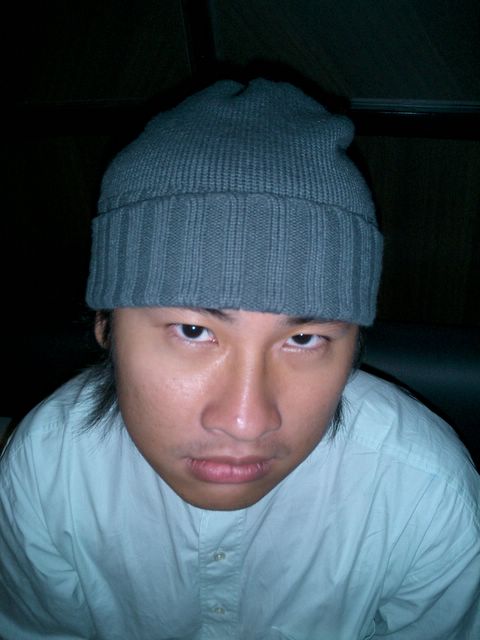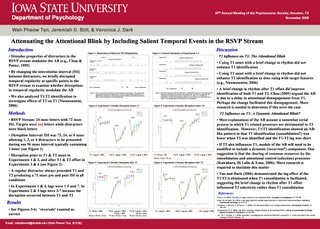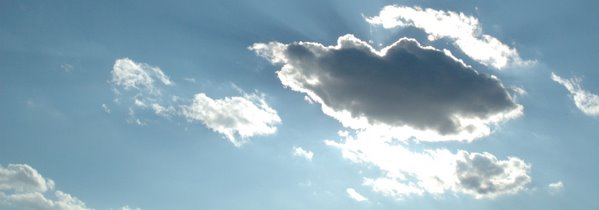AN INTERESTING CONVERSATION (???)
An atheist professor of philosophy speaks to his class on the problem
science has with God, The Almighty. He asks one of his new students to stand and …..
Prof: So you believe in God?
Student: Absolutely, sir.
Prof: Is God good?
Student: Sure.
Prof: Is God all-powerful?
Student: Yes.
Prof: My brother died of cancer even though he prayed to God to heal him.
Most of us would attempt to help others who are ill. But God didn’t. How is
this God good then? Hmm?
(Student is silent.)
Prof: You can’t answer, can you? Let’s start again, young fellow. Is God
good?
Student: Yes.
Prof: Is Satan good?
Student: No.
Prof: Where does Satan come from?
Student: From…God…
Prof: That’s right. Tell me son, is there evil in this world?
Student: Yes.
Prof: Evil is everywhere, isn’t it? And God did make everything. Correct?
Student: Yes.
Prof: So who created evil?
Student does not answer.
Prof: Is there sickness? Immorality? Hatred? Ugliness? All these terrible
things exist in the world, don’t they?
Student: Yes, sir.
Prof: So, who created them?
Student has no answer.
Prof: Science says you have 5 senses you use to identify and observe the
world around you. Tell me, son…Have you ever seen God?
Student: No, sir.
Prof: Tell us if you have ever heard your God?
Student: No, sir.
Prof: Have you ever felt your God, tasted your God, smelt your God? Have
you ever had any sensory perception of God for that matter?
Student: No, sir. I’m afraid I haven’t.
Prof: Yet you still believe in Him?
Student: Yes.
Prof: According to empirical, testable, demonstrable protocol, science
says your GOD doesn’t exist. What do you say to that, son?
Student: Nothing. I only have my faith.
Prof: Yes. Faith. And that is the problem science has.
Student: Professor, is there such a thing as heat?
Prof: Yes.
Student: And is there such a thing as cold?
Prof: Yes.
Student: No sir. There isn’t.
(The lecture theatre becomes very quiet with this turn of events.)
Student: Sir, you can have lots of heat, even more heat, superheat, mega heat, white heat, a little heat or no heat. But we don’t have anything called cold. We can hit 458 degrees below zero which is no heat, but we can’t go any further after that. There is no such thing as cold. Cold is only a word we use to describe the absence of heat. We cannot measure cold. Heat is energy. Cold is not the opposite of heat, sir, just the absence of it.
(There is pin-drop silence in the lecture theatre.)
Student: What about darkness, Professor? Is there such a thing as darkness?
Prof: Yes. What is night if there isn’t darkness?
Student: You’re wrong again, sir. Darkness is the absence of something. You
can have low light, normal light, bright light, flashing light….But if you have no light constantly, you have nothing and it’s called darkness, isn’t it? In reality, darkness isn’t. If it were you would be able to make darkness darker, wouldn’t you?
Prof: So what is the point you are making, young man?
Student: Sir, my point is your philosophical premise is flawed.
Prof: Flawed? Can you explain how?
Student: Sir, you are working on the premise of duality. You argue there is
life and then there is death, a good God and a bad God. You are viewing the
concept of God as something finite, something we can measure. Sir, science
can’t even explain a thought. It uses electricity and magnetism, but has
never seen, much less fully understood either one.
To view death as the opposite of life is to be ignorant of the fact that
death cannot exist as a substantive thing. Death is not the opposite of
life: just the absence of it.
Now tell me, Professor. Do you teach your students that they evolved from a
monkey?
Prof: If you are referring to the natural evolutionary process, yes, of
course, I do.
Student: Have you ever observed evolution with your own eyes, sir?
(The Professor shakes his head with a smile, beginning to realize where the
argument is going.)
Student: Since no one has ever observed the process of evolution at work
and cannot even prove that this process is an on-going endeavor, are you not
teaching your opinion, sir? Are you not a scientist but a preacher? (The class is in uproar.)
Student: Is there anyone in the class who has ever seen the Professor’s brain?
(The class breaks out into laughter.)
Student: Is there anyone here who has ever heard the Professor’s brain, felt it, touched or smelt it? No one appears to have done so. So, according to the established rules of empirical, stable, demonstrable protocol, science says that you have no brain, sir.
With all due respect, sir, how do we then trust your lectures, sir?
(The room is silent. The professor stares at the student, his face
unfathomable.)
Prof: I guess you’ll have to take them on faith, son.
Student: That is it sir… The link between man & god is FAITH. That is all
that keeps things moving & alive.
============================================
I am sure some of you have received the above parable about the conversation between the atheist professor and his students where they discuss about god in one form or another. The final conclusion is that the atheist professor is wrong and science can never proof the existence of god, and even science is based on faith (the favorable example being that we cannot see, taste, smell the professor's brain and hence he has no brain...).
Recently, a friend forwarded this parable to me again and asked if I could provide any counter arguments (he knows I am an atheist, distrusts religion and defends the scientific methodology)... Here is my counter arguments to him (below), together with the original message in his email at the end of this email (below the counter arguments, right at the end of this email).... This is a bit long, so be warned that you would not want to read this unless you are really interested and have a lot of time on your hands. Or if you think you can rebutt my counterpoints, please feel free to email me back your counter-counter-arguments...
===========================================
Yes, I can counter the arguments.
And this has been circulating for a while now, this is not the first time I've seen it.
Before I counter the arguments, let me explain the "strategy" put forward by the person doing up this little anecdote.
(1) The professor's argument is definitely too simplified and flawed. However, the writer of this anecdote meant it to be so. This is to create a "straw man" such that he can later beat down with the second student. This is what we call the straw man fallacy in argumentation, where you create a weak opponent in order to knock him down such that you can seen to be the "winner" in the argument.
(2) This is where the second student's argument does not stand: all he does is to show that the professor's argument is wrong. BUT IT DOES NOT STEM FROM THIS THAT HIS ARUGMENT IS RIGHT. This is a sly shifting of the burden of evidence. Just because he shown that the professor's argument is wrong, does not equate to him being right. Let me put it in a simple example. Shop A sells a certain beverage. You think they sell coffee, I think they sell tea. So I go up to ask the shop keeper if they sell coffee and he says no. Then I say: ha, see! You are wrong and I am correct! The shop sells tea! But then again, the shop may be selling Milo. Just because it does not sell coffee doesn't mean it will sell tea.
(3) ... And the professor's argument is "doomed" to be wrong when pitched in the context of this argument. This is because the concept of "GOD" as an ultimate reality as defined by monothesim (Christians, Muslims, Judaism) is an UNFALSIFIABLE HYPOTHESIS. Just as no one can provide evidence to reject the claim of GOD (like what the professor is doing), no one can also provide evidence for the claim of GOD. That is why a lot academics when saying that "no god exists" are careful to hedge their words by saying that they are talking
about a personal god and not god who exists as an ultimate reality. And the basic tenets of science teaches us that nothing is impossible, but something can be really really really improbable. This is why scientists like Richard Dawkins never never never says that god is impossible, just very improbable.
And since we are on to science, let me counter a few of the student's points which are just damn wrong.
(4) Science is not faith. In fact, science is the opposite of faith. Faith is the willingless to believe in something in the total lack of empirical evidence. However, scientific theories always demand empirical evidence and anything that requires faith is just wild speculation. Faith is NEVER WRONG, but science says that there will always be a possibility that we are wrong, and that we can never be definitely certain that we are correct on something. Faith says you do not need questions because they have all the answers. Science teaches one to ask questions because we don't have all the answers. Faith is a closed system of knowledge, while science is an open system of knowledge. Faith claims that one can never make a mistake about something, but science always admits that it is not perfect, and can make mistakes. The difference is science has a self-correcting mechanism. If an epsitemological mistake had been made, then science will attempt to rectify it. Faith, on the other hand, do not have this self-correcting mechanism because it assumes that NO MISTAKES CAN BE MADE.
(5) The student claims that just because we do not see something happening, or we do not see something, then we do not have empirical evidence of it. This is again another misconception. We also do not see gravity. But we see its effects on falling objects. Science makes a difference between what is observable construct and unobservable constructs. Most scientific theories are built on entities that are unobservable constructs (e.g. atoms, electrons), and we only second-guess their existence by building theories about them and testing them by
observing their effects on things we can percieve. Identifying with a construct that you do not see is not faith: for example, if one day we go to a planet that is larger than earth but you feel lighter there, it means the theory of gravity has been disproved, for gravity will state that we will feel heavier there.
(6) Which brings us to evolution. The favorite target of those with faith. Similar to the point above, we do not see the whole evolutionary process, because it is too slow and takes too long for a human to "see" the whole process taking place. But this does not mean that subscribing to the evolutionary theory is based entirely on faith, as there can be evidence to disprove the entire evolutionary theory. As the great biologist J B S Haldane growled, when asked what might disprove evolution: "Fossil rabbits in the pre-Cambrian.". Or if you
find fossiled humans and dinosaurs together. This will disprove the whole evolutionary theory. And as far as I know, no one has been able to produce such evidences.
(7) So, if I were the professor, my answer will be that you don't have to take the notion that I have a brain on faith. This is because the student is limiting his domain of what counts as "empirical evidence" as "percieved entities". This is just wrong.
So, is this a satisfying enough rebuttal? If not, I do have more.
sincerely,
wah pheow
=============================================
If any of you guys managed to read through the long counter-arguments, the take-home message is that any arguments for a complex question is always more complex and can never be reduced to simple words or concepts. The explanation for a complex question is always complex and can never be reduced to simple terms such as "You just gotta have faith". This is too intellectually unsatisfying and too intellectually lazy. I guess my point is, when you read about such parables, take it with a pinch of salt and think through the arguments regularly. Always be skeptical of other people when they tell you they have a simple solution to a complex question...
Stay foolish, always be skeptical.













